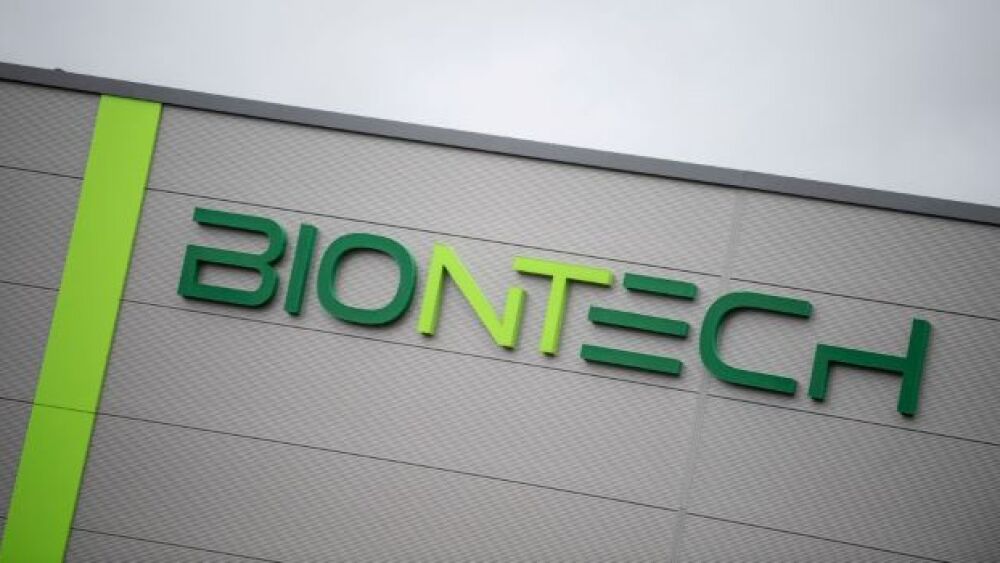BioNTech inked an exclusive worldwide license and collaboration agreement with OncoC4 to develop and commercialize its investigational anti-CTLA-4 antibody ONC-392 for solid tumors.
Pictured: BioNTech Headquarters/Courtesy of Getty Images
Monday, BioNTech inked an exclusive worldwide license and collaboration agreement with Maryland-based biopharma OncoC4 to develop and commercialize its investigational anti-CTLA-4 antibody ONC-392 for solid tumors.
The partnership represents BioNTech’s return to its oncology roots.
Though BioNTech is best known for its COVID-19 vaccine, it was founded in 2008 to develop and produce individualized cancer immunotherapies.
Under Thursday’s deal, OncoC4 will receive an upfront payment of $200 million and will be entitled to receive development, commercial and regulatory milestones. BioNTech also pledged double-digit tiered royalty payments to OncoC4.
BioNTech and OncoC4 will assess ONC-392 as a potential treatment, alone or in combination with anti-PD-(L)-1 antibodies, against various solid tumor indications, including non-small cell lung cancer (NSCLC).
The partners will equally share development costs for these studies until regulatory approval.
Both companies will also test the therapeutic potential of ONC-392 outside of PD-1 inhibition, particularly when combined with compounds in BioNTech’s pipeline. These studies will be shouldered solely by BioNTech.
ONC-392 joins more than 10 other molecules in BioNTech’s oncology pipeline.
By selectively disabling the CTLA-4 pathway in the microenvironment of tumors, ONC-392 boosts the cancer-killing activity of T cells while limiting toxic side effects in healthy tissues.
This differentiated safety profile, coupled with promising clinical performance, makes ONC-392 a valuable addition to the company’s cancer portfolio, said Ugur Sahin, M.D., CEO and co-founder of BioNTech, in a statement.
ONC-394 will soon be evaluated against the standard of care in a Phase III trial as a monotherapy in PD-1-resistant NSCLC. The candidate grasped the FDA’s Fast Track designation in this indication.
ONC-394 rounds out BioNTech’s approach to cancer.
Its other oncology candidates work through different pathways. Some target the PD-L1, CD27 or CA19-9 pathways, while others are mRNA vaccines that encode for cancer-associated antigens to elicit a robust immune response.
CTLA-4 Competitors
If Tuesday’s partnership culminates in regulatory approval, BioNTech will come face-to-face with other established CTLA-4 therapies.
Most prominently, ONC-394 will contend with Bristol Myers Squibb’s Yervoy (ipilimumab), whose 2011 approval for melanoma validated the value of CTLA-4 as an oncology target.
Yervoy was approved for NSCLC in May 2020.
Then in June 2022, Yervoy aced the Phase III CheckMate -9LA study, which assessed its combination with checkpoint inhibitor Opdivo (nivolumab) in untreated metastatic NSCLC.






